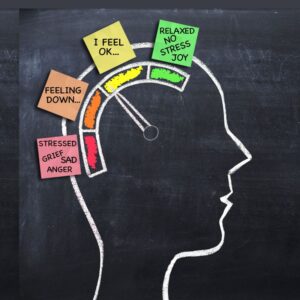 Grief Awareness and Depression Screening — National Grief Awareness Day is acknowledged to raise awareness of the different ways that people cope with loss and bereavement. The purpose of this day is to offer resources and support to those who are going through personal losses and to remind us to be compassionate and understanding to people we know who are grieving.
Grief Awareness and Depression Screening — National Grief Awareness Day is acknowledged to raise awareness of the different ways that people cope with loss and bereavement. The purpose of this day is to offer resources and support to those who are going through personal losses and to remind us to be compassionate and understanding to people we know who are grieving.
Grief is a complex and personal process that depends on many factors, including the cause and nature of the loss, the individual’s personality and coping skills, the social and cultural context, and the availability of support.
Some of the reasons why people grieve differently are:
Cause of the loss
Losing someone to natural causes may elicit different emotions than losing someone to a violent or sudden death.
Nature of the loss
The loss of a spouse may have different implications than losing a friend or a coworker.
Personality and coping skills
Some people may be more resilient and maintain optimism, while others may be more fragile, vulnerable, and pessimistic.
 Social and cultural context
Social and cultural context
While some cultures may have rituals and traditions that help people cope with loss, others may discourage or stigmatize grief. This can include religious and family rituals and traditions.
Accessible support
Supportive friends, family members, or professionals in one’s life can help them feel less isolated and more understood.
 Grief can be an unpredictable process, varying in intensity, duration, and frequency from person to person. There is no right or wrong way to grieve, as long as it does not interfere with one’s health and well-being. Sometimes, however, grief does interfere with one’s life and make it difficult to carry on as usual. If grief lasts longer than anticipated, hindering your daily life, or causes distressed thoughts, it’s time to speak with your healthcare professional.
Grief can be an unpredictable process, varying in intensity, duration, and frequency from person to person. There is no right or wrong way to grieve, as long as it does not interfere with one’s health and well-being. Sometimes, however, grief does interfere with one’s life and make it difficult to carry on as usual. If grief lasts longer than anticipated, hindering your daily life, or causes distressed thoughts, it’s time to speak with your healthcare professional.
Depression screening can help diagnose depression, understand how severe it is, and figure out what type of depression you have, which can lead to recovery. PPMA offers depression screening to our patients. Call (949) 566-8179 to schedule your depression screening.
Learn more about depression from the National Institute of Mental Health (NIH)
Enjoy patient-centered healthcare with PPMA.



 Social and cultural context
Social and cultural context